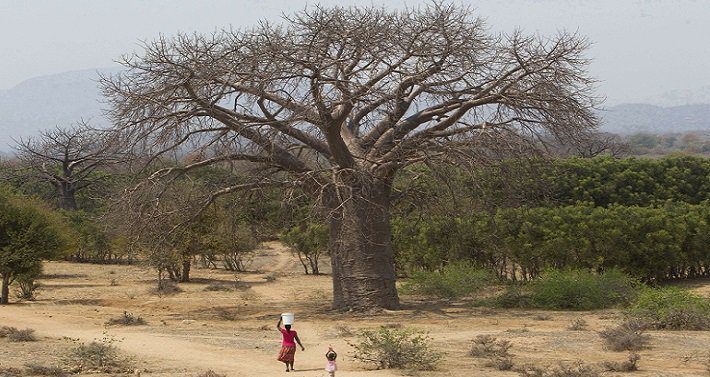By Reuters
Taerou Dieuhiou has been climbing barefoot up baobab trees in Senegal’s southern Casamance region to collect their oblong fruit since he was 15.
He uses a long pole to dislodge the fruit from the outer branches.
Until recently, baobabs were only tapped for local use but in a major business shift, a small network of producers and suppliers has pushed the fruit’s profile abroad.
Business has never been better.
Inside the hard, green shell that dangles from the spindly branches of Africa’s most iconic tree is a citrussy pulp that has become a popular “superfood” in the United States and Europe.
Rich in vitamin C, calcium and magnesium, it can be ground into a powder, mixed into smoothies or sprinkled on porridge.
Coca-Cola’s Innocent, U.K. yogurt maker Yeo Valley and U.S. wholesaler Costco are among the major brands to sell baobab products.
The transformation has started to bring in much needed revenue to African farmers.
Through a cooperative called GIE, Baobab des Saveurs, a small company with buyers in Australia and Canada pays Dieuhiou up to 10,000 CFA francs ($18) per sack, more than double what he received from local middlemen a few years ago.
“Before with the dealers selling was more difficult. They would come and impose their own prices. So before we would sell a bag at a low prices but today with the GIE (the collective set up by Baobab des Saveurs to buy by the kilo from the farmer without going through an commercial agent) we earn more,” Dieuhiou said.
Exports of the hard-shelled fruit rose from 50 tonnes in 2013 to 450 tonnes in 2017, according to industry group – African Baobab Alliance.
They are expected to reach 5000 tonnes by 2025, about 500 shipping containers a year.
This would make it a $400 million industry.
“For the second year running we have taken part in the Biofach, a big trade fair for organic (products) in Germany and which covers the whole of Europe and there was a lot more interest (in our baobab product) this year than last year. People still struggle to recognise the Baobab, often people think its cocoa, but they come and have a look, they come and taste it, they come to discover the fruit and through communciation we will manage to get them more and more interested,” said Pierre Gilles Commeat, the head of Baobab des Saveurs.
Hundreds of tonnes of baobab fruits a year are taken to processing factories run by international firms across Africa to be shaken and sieved into a powder.
The seed is pressed into an oil for use in cosmetics.
In January, Yeo Valley started to sell a vanilla and baobab yogurt in Britain’s biggest supermarkets.
Climate change has impacted crop development
Costco this year introduced a breakfast bowl with baobab and acai, a berry from the Brazilian Amazon.
Coca-Cola-owned Innocent released a baobab smoothie in 2016.
While growing demand has increased farmers’ winnings, it has raised worries about sustainability, particularly in sub Saharan Africa where some experts say climate change has impacted crop development.
Experts have also questioned whether a global market for baobab can be sustained. Unlike coffee or cocoa found in abundance in Africa, baobab is not a plantation crop.
It takes so long to mature that farmers rely largely on existing trees to harvest. There is also evidence that those trees are under threat.
In Casamance, baobab picker Ndella Badiane said she can afford to send her kids to school and buy them clothes since overseas interest reached her hamlet in a forest clearing.
But she has noticed a change, there is less rainfall and the trees are yielding less fruit than previous years.
That is one of the reasons why Badiane, who is part of a cooperative of women pickers have started a nursery to grow more baobabs.
“We are aware that there is less and less of the baobab fruit. We had a better yield in previous years than this year because there was not much rain. So we pray there will be enough rain so the baobabs can produce more,” Badiane said.
US-based Dan Nessel set up his nutrition company selling superfoods, Limitless Good, over a decade ago.
He added baobab powder to his range of products in 2013 when it was still an obscure ingredient outside of Africa.
Sales were slow at first. Few companies sold baobab powder and consumers didnt know about it. But in the last five years the company’s sales of baobab powder leaped from around 45,000 USD to 120,000 USD per year.
Limitless Good’s baobab powder is sourced from Benin in West Africa.
The imposing tree dots the dry African savannah from Senegal to Madagascar and can live for over a millennium.








